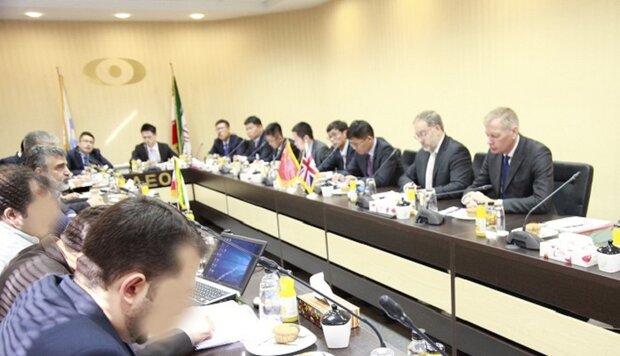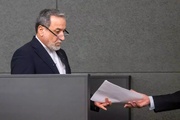This meeting was led by the AEOI spokesman Behrouz Kamalvandi, the British ambassador to Iran Robert Macaire, and Chinese officials from China Atomic Energy Authority and Ministry of Foreign Affairs of the People's Republic of China.
Noting that JCPOA is the reason for the gathering, Kamalvandi said “at present, the JCPOA is not in good conditions.”
“Despite the fact that Iran has fulfilled all its JCPOA commitments, it could not reach its interests,” he said, “The Islamic Republic has taken steps to scale down its obligations to make a balance between its commitments and rights.”
“Preserving this valuable agreement [JCPOA] is now reliant on positive steps of the remaining parties,” he added.
He named Arak reactor modernization a vital step that can transmit a positive message to the world, adding the project is 100 percent peaceful and in accordance with the international regulations and that it is an exception to any further sanctions.
The English envoy, for his part, expressed content about attending the meeting saying that such meetings prove improvement of negotiations. “Not only the remaining parties in the JCPOA but also most of the world countries want the nuclear deal be rescued,” he added.
Admitting that US withdrawal from the JCPOA was not a useful act, he said “Europeans are continuing their efforts to preserve the JCPOA.”
“Everyone should cooperate to save the JCPOA and that is why the UK has dispatched an expert team to Iran,” Macaire said.
As reported, the coordination meeting will also be held on Tuesday and Wednesday.
The British delegation arrived in Tehran on Sunday to join a team of Chinese scientists who are also working on modernizing the heavy water reactor.
Previously, China and the US were members of Arak reactor modernization working group but following the US withdrawal from JCPOA, the group is held with the membership of China and Britain.
"A team of British nuclear experts led by UK Chief Scientific Adviser Professor Robin Grimes arrived in Tehran today to take forward the next stages of the modernization of the Arak reactor," a statement by the British Embassy in Tehran was quoted.
"The experts will hold talks with the Atomic Energy Organization of Iran on international technical assistance to the reactor construction," the statement added.
This visit is part of the commitment to ensure that the Iranian landmark nuclear deal, formally known as Joint Comprehensive Plan of Action (JCPOA), provides benefits for both Iran and the wider international community, according the statement.
Britain will cooperate with Iran to modernize the Arak reactor, helping Iran to develop a modern and up-to-date civil nuclear program, it said.
According to Head of Iran’s nuclear agency the second part of Arak heavy water reactor will become operational in the next two weeks.
Speaking to reporters after attending a parliament session on October 7, the Head of the Atomic Energy Organization of Iran (AEOI) Ali Akbar Salehi said that within the next three weeks, the second part of Arak heavy water reactor will become operational.
Salehi noted that the bulk of the nuclear process takes place in the second part of the reactor.
He added that the nuclear experts have been working on the second part of the Arak reactor for the past 4 years, adding that with the installation of the fuel lattice pitch in the next two or three weeks, the second part of the reactor will become operational.
IR-40 also known as Arak Nuclear Plant is an Iranian 40 megawatt heavy water reactor under construction near Arak, adjacent to the 1990s era Arak Heavy Water Production Plant. Civil works for the construction began in October 2004. It is intended to produce isotopes for cancer and other medical treatments.
MNA/ 4746628


























Your Comment